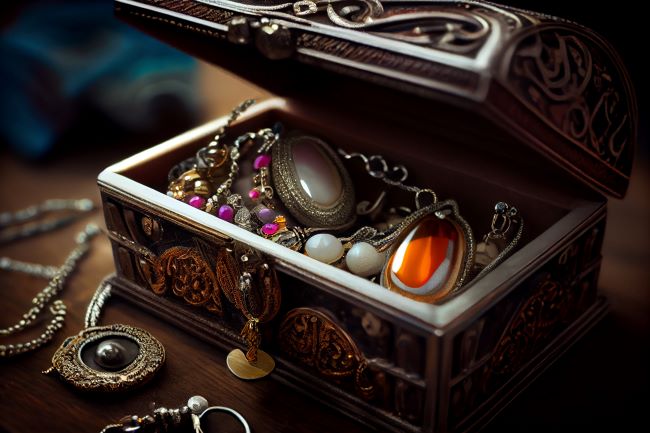Since family heirlooms can hold both sentimental and financial value, making sure the right person inherits them is an important aspect of estate planning. However, common mistakes and oversights can lead to family squabbles and may result in heirlooms falling into the wrong hands. Careful estate planning for family heirlooms can protect your precious assets and help you preserve family memories and traditions.
Family Heirlooms: Two Scenarios to Avoid
When estate planning for family heirlooms, there are two types of scenarios you want to avoid.
The first is family members arguing over who receives what. For example, imagine a woman has a collection of jewelry. She has pieces from her parents, grandparents, and even great-grandparents. Some of the pieces are also worth a considerable sum of money. As the woman does not have a will, her estate is distributed according to Oregon intestate laws after her death. Her children, their spouses, and her grandchildren argue over who should receive certain pieces of jewelry. There is one ring in particular everyone wants. The arguments become bitter, and the family is divided. A similar scenario could have occurred if the woman had a will but did not provide specific instructions regarding the jewelry.
The second scenario is a precious heirloom ending up in the hands of the wrong person. For example, let’s say a young mother is terminally ill and wants her antique doll collection (which includes some dolls that belonged to her mother and grandmother) to go to her daughter, who is currently a baby. She makes this wish clear to her family but does not put it in a formal will. After her death, her husband remarries. His new spouse has a daughter who sees the dolls and wants them. The husband and his new spouse decide to divide the dolls equally among the two girls, even though this goes against the wishes of the deceased mother.
How to Avoid Estate Planning Issues Involving Heirlooms
Careful estate planning can help prevent family disputes while ensuring your precious family heirlooms end up with the right person. To tackle estate planning for your family heirlooms, take the following steps:
- Create an inventory of your family heirlooms and other valuables. You may have more heirlooms than you realize. This could include jewelry, art collections, antiques, family cookbooks, and other items of sentimental (and often monetary) value.
- Decide what you want to happen to your heirlooms. You may want individual pieces to go to specific heirs. You may also wish to donate pieces of historical or artistic value to museums or other nonprofit organizations that can restore and maintain the pieces.
- State your wishes in a will. Once you’ve decided what you want to happen to your heirlooms, express your wishes in a will.
- Discuss your plans with your heirs. Although you may be tempted to avoid the topic or make your decisions a surprise, frank discussions can prevent unpleasant revelations and disputes after you pass. By discussing your wishes, you can explain the reasoning behind your decisions – while making it clear that you’ve made up your mind.
- Consider special arrangements for minor heirs. If you are naming minors as heirs, you may need to make special arrangements to ensure the assets are kept safe until the heirs are old enough to take possession of them. Possible arrangements could include setting up a trust or naming a guardian to hold the personal property for minor children under the Oregon Uniform Transfers to Minors Act.
There’s a lot to think about when crafting your estate plan. Making sure your family heirlooms go to the right people is just the tip of the iceberg. An experienced estate planning attorney can help you navigate the ins and outs of estate planning for family heirlooms and other assets to avoid common mistakes and oversights. Contact Skinner Law.

